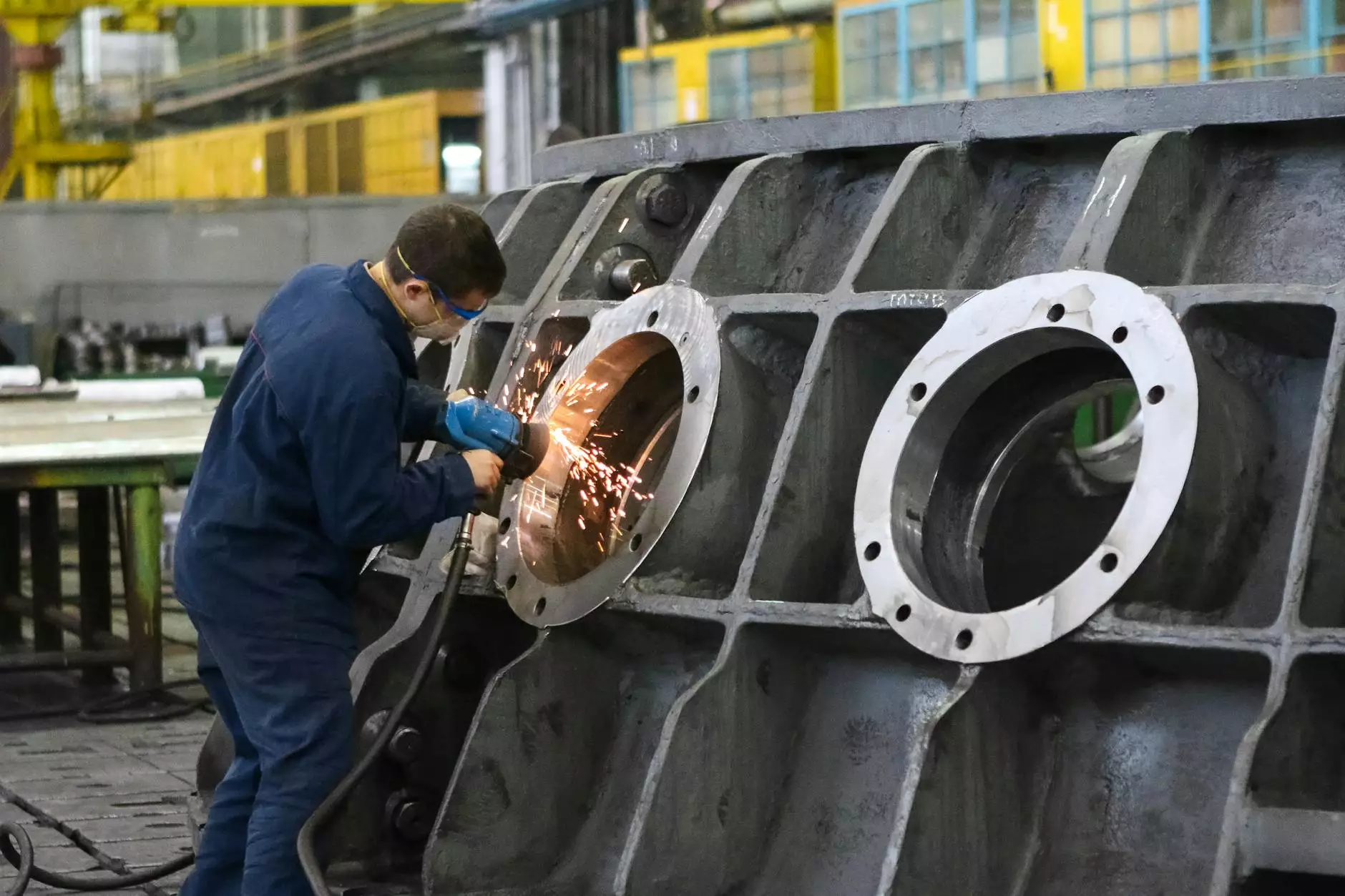Unveiling the Power of Water Cleaning Chemicals: How They Transform Water Treatment and Business Performance

In an era where sustainable practices and environmental responsibility dominate industrial and commercial pursuits, the role of water cleaning chemicals has become more critical than ever. These specialized chemicals are at the core of efficient water treatment processes that not only improve water quality but also ensure compliance with regulations, enhance operational efficiency, and promote ecological sustainability. This comprehensive guide explores the depth and breadth of water cleaning chemicals, their applications across various industries, and the strategic advantages they offer to modern businesses.
Understanding Water Cleaning Chemicals: An Essential Element of Water Treatment
Water cleaning chemicals encompass a diverse range of substances designed to remove contaminants, inhibit microbial growth, and facilitate the purification of water for multiple uses. They are fundamental in industries such as manufacturing, food and beverage production, pharmaceuticals, municipal water systems, and aquaculture, among others.
- Scope of application: Industrial wastewater treatment, drinking water purification, cooling tower maintenance, boiler water treatment, and swimming pool sanitation.
- Types: Disinfectants, flocculants, coagulants, pH adjusters, anti-scalants, and corrosion inhibitors.
- Goals: Eliminate harmful microorganisms, remove suspended solids, control pH levels, prevent scaling and corrosion, and improve overall water clarity and safety.
Types of Water Cleaning Chemicals and Their Roles
Disinfectants and Microbial Control Agents
Disinfectants such as chlorine, bromine, and ozone are vital for eliminating pathogenic microorganisms. They ensure that water used in process or recreational settings is microbiologically safe, thereby reducing health risks and product spoilage.
Coagulants and Flocculants
These chemicals are essential in aggregating fine particles into larger flocs, facilitating easier removal of impurities during sedimentation or filtration processes. Common coagulants include aluminum sulfate (alum) and ferric chloride, while flocculants often include polyacrylamides.
pH Adjusters
Maintaining an optimal pH is crucial for effective water treatment. Chemicals like sulfuric acid, sodium hydroxide, or lime are used to adjust the pH levels to prevent corrosion or scaling and to optimize chemical reactions.
Anti-Scalants and Scale Inhibitors
These chemicals prevent mineral deposits such as calcium carbonate or magnesium hydroxide from forming scale on equipment surfaces, ensuring continuous and efficient operation of boilers and cooling towers.
Corrosion Inhibitors
Corrosion inhibitors form protective films on metal surfaces, extending the life of pipes, heat exchangers, and other equipment, thereby reducing maintenance costs and downtime.
Strategic Benefits of Using Water Cleaning Chemicals in Business Operations
Incorporating high-quality water cleaning chemicals into your water treatment protocols offers tangible operational, financial, and environmental benefits:
- Enhanced Water Quality: Achieve optimal clarity, safety, and compliance with health standards.
- Operational Efficiency: Reduce equipment wear, prevent fouling, and maintain smooth operations.
- Cost Savings: Minimize energy consumption, extend equipment lifespan, and reduce chemical wastage.
- Regulatory Compliance: Meet stringent environmental and health regulations with reliable treatment solutions.
- Environmental Sustainability: Reduce chemical usage and prevent environmentally harmful discharges.
Key Factors in Selecting the Right Water Cleaning Chemical
Choosing the appropriate chemical requires a comprehensive understanding of your specific water conditions, industry standards, and operational requirements. Consider the following factors:
- Water Quality Parameters: Assess pH, turbidity, dissolved solids, microbial load, and other relevant parameters.
- Contaminant Types: Identify the specific pollutants or impurities to target.
- Process Compatibility: Ensure chemical compatibility with existing treatment systems and materials.
- Regulatory Standards: Comply with local and international regulations governing chemical use and discharge.
- Cost-Effectiveness: Balance chemical performance with budget constraints.
Innovations and Trends in Water Cleaning Chemicals
The field of water treatment is continuously evolving, with new chemical formulations and treatment methodologies emerging to address complex water quality challenges. Notable trends include:
- Green Chemicals: Environmentally friendly and biodegradable chemicals that reduce ecological impact.
- Advanced Disinfection Technologies: Use of non-chemical methods like UV and advanced oxidation processes in tandem with chemical disinfectants.
- Smart Water Treatment: Integration of sensor technology and automation to optimize chemical dosing and monitor water quality in real-time.
- Nanotechnology: Development of nanomaterials with superior adsorptive and antimicrobial properties.
Ensuring Sustainability and Safety with Water Cleaning Chemicals
Implementing sustainable practices involves selecting chemicals that are effective yet environmentally responsible. Proper handling, storage, and dosing protocols are essential to minimize chemical waste and prevent environmental contamination.
Employing water cleaning chemicals from reputable suppliers like groupleefkimyadisticaret.com ensures access to high-quality, tested, and compliant products that support your business's environmental and safety commitments.
Partnering with Experts to Optimize Water Treatment Processes
Developing a tailored water treatment strategy is complex and requires expertise. Collaborate with experienced chemical suppliers who can perform thorough water analysis, recommend suitable chemicals, and provide ongoing technical support. This partnership helps achieve:
- Optimized chemical usage: Precise dosing reduces costs and environmental impact.
- Consistent water quality: Reliable results that meet industry standards.
- Compliance assurance: Navigating regulatory landscapes effectively.
Conclusion: The Future of Business Success with Advanced Water Cleaning Chemical Solutions
In today's competitive and environmentally conscious market, the strategic application of water cleaning chemicals plays a pivotal role in maintaining efficient, sustainable, and compliant business operations. As industries continue to innovate, embracing eco-friendly and technologically advanced chemicals will be essential in achieving operational excellence and environmental stewardship.
Whether you operate within manufacturing, municipal water systems, or specialized production lines, understanding the nuances of water treatment chemicals empowers your business to make informed decisions. Partnering with trusted suppliers like groupleefkimyadisticaret.com ensures you access a comprehensive range of chemical solutions tailored to your specific needs, supported by expert guidance.
Empower Your Business with Superior Water Treatment Solutions Today
The future of water treatment hinges on adopting innovative, efficient, and sustainable chemical solutions. Explore your options, invest in quality water cleaning chemicals, and collaborate with specialists who understand the vital importance of clean water in business success. Together, we can achieve operational excellence while safeguarding our environment for generations to come.









